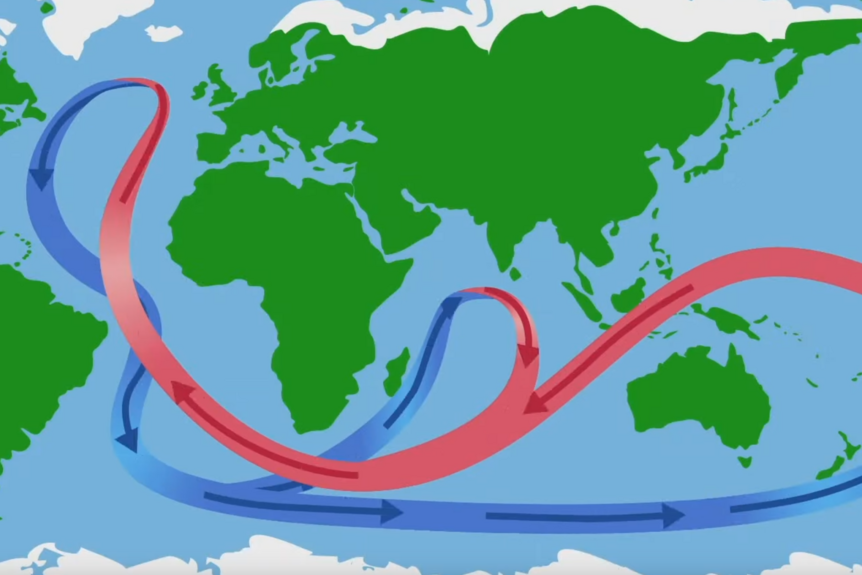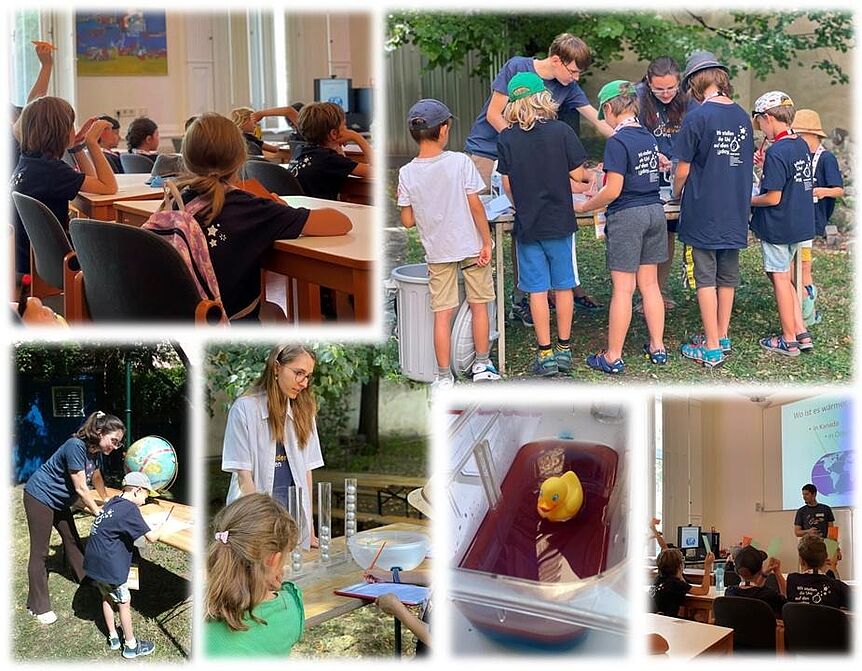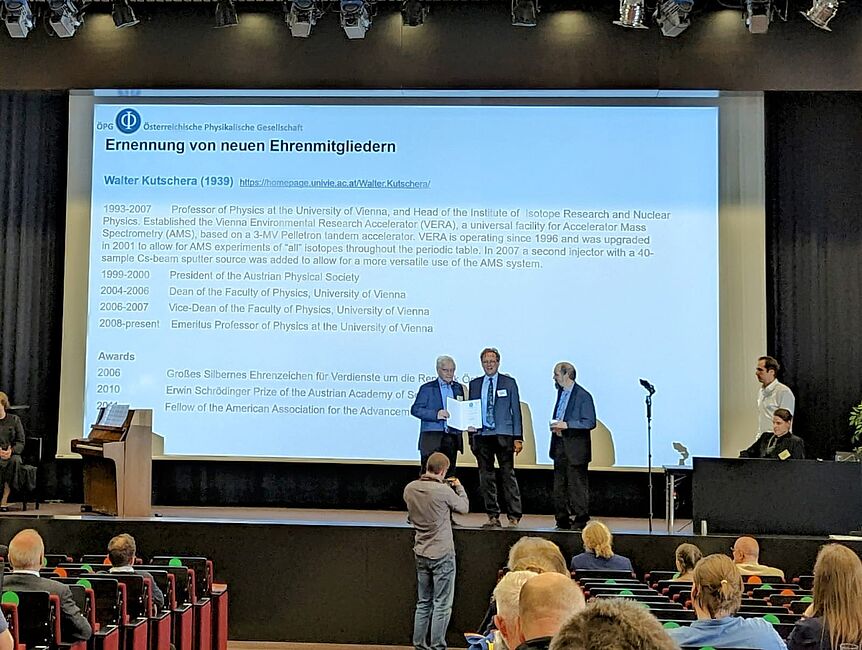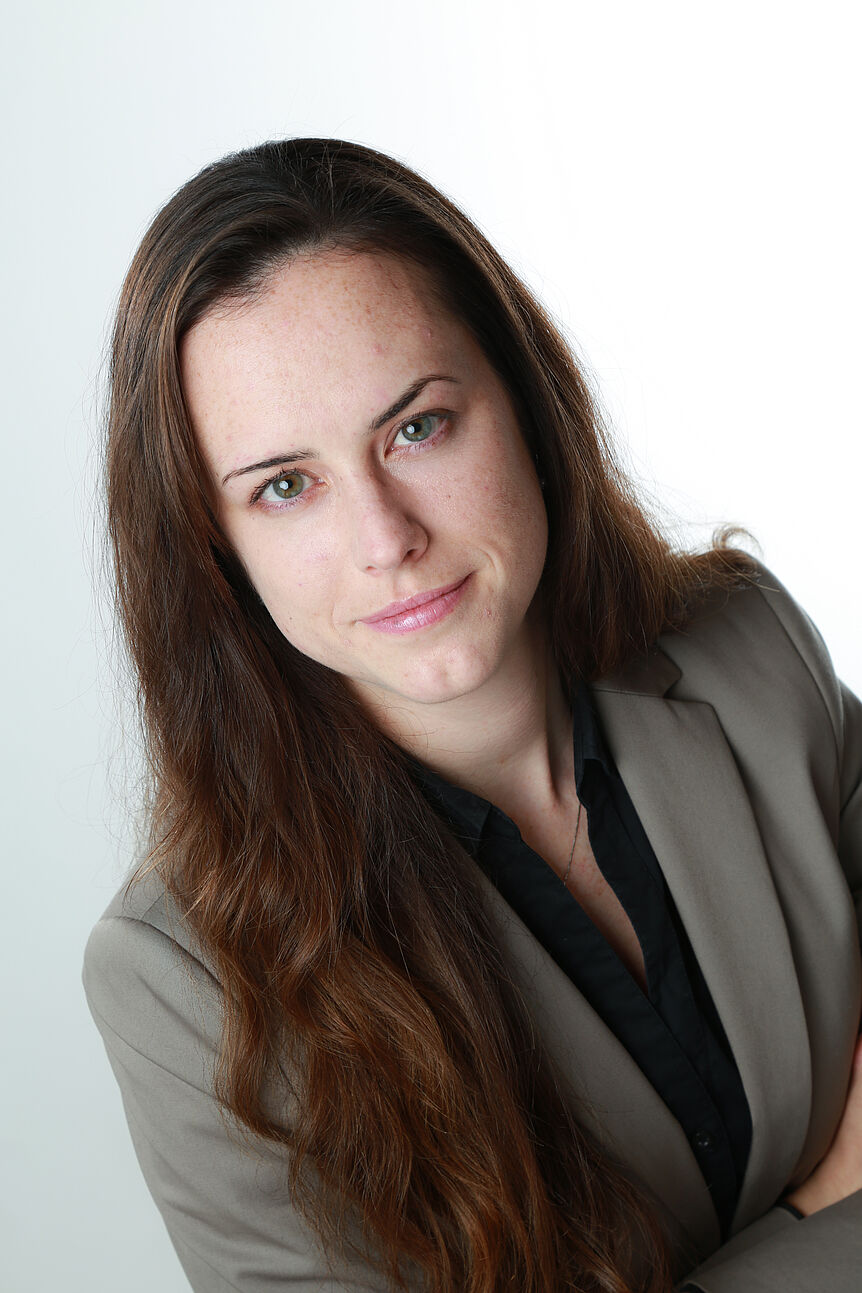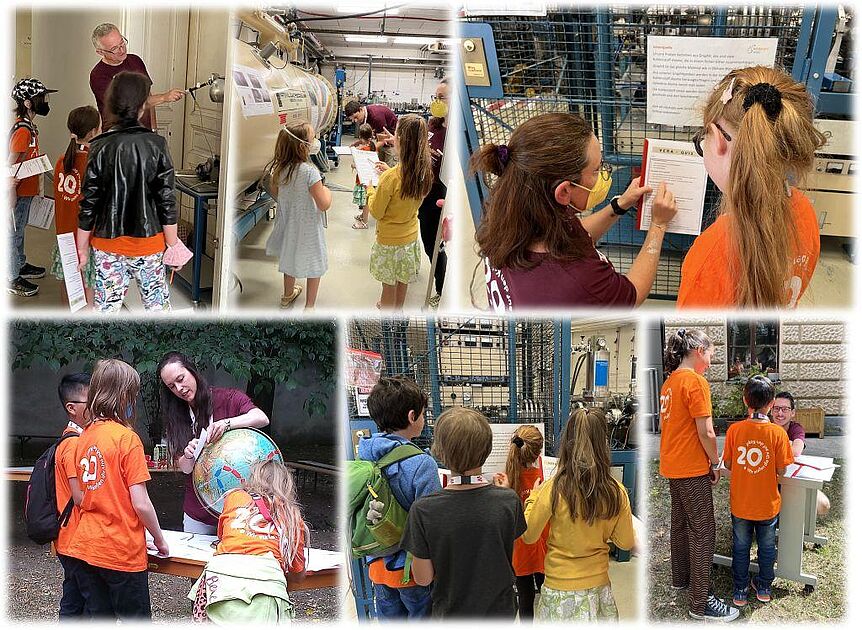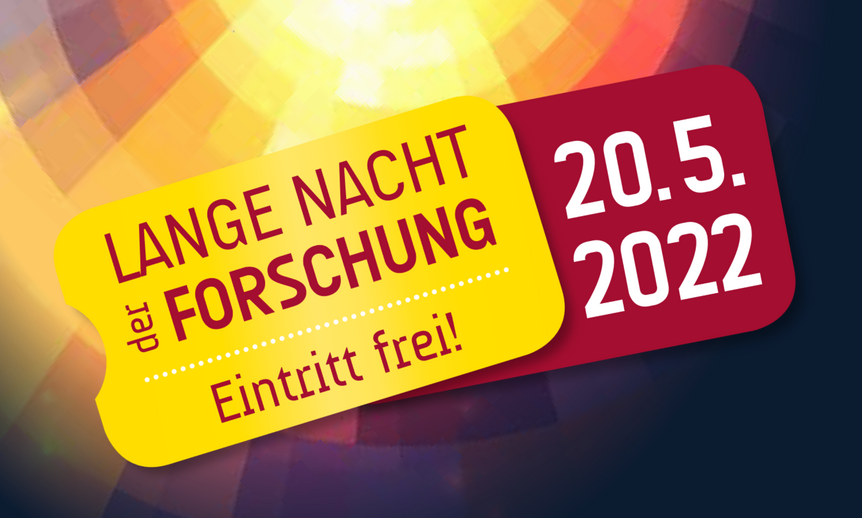Outreach of the Isotope Physics research group
Kinderuni / Kinderuni on Tour...
Research and science for 7-12 year old children. Curious children share their curiosity with the scientists of the faculty, ask questions and experiment together.
Long Night of Research
We take part in the Long Night of Research every year, with a lot of opportunities to learn the applications of Isotope Physics.
Guided tours@VERA...
Visit the particle accelerator of the University of Vienna, the Vienna Environmental Research Accelerator (VERA). Contact: see below
Isotope Physics in popular media
Contributions of members of the Isotope Physics Research Group in newspapers, blogs, etc. can be found here.
ChETEC-INFRA Masterclass
Our PhD students participate in the ChETEC-INFRA Masterclass, teaching about the relation between Nuclear Physics and Astrophysics.
physics:science@school...
A series of fascinating lectures by scientists for pupils in Viennese schools (upper secondary schools).
Talent internship program at the Isotope Physics group
Interested and talented students can apply for the positions advertised on the FFG internship exchange at the Faculty of Physics and therefore at the research group for Isotope Physics.
PlusLucis...
Teachers of physics and chemistry can further their education through lectures, demonstration and discussion of apparatus and experiments, study courses, publication of an association journal and training courses.
Video: AMS - Answering Earth's Biggest Questions
Together with Science Animated, we produced a video explaining how accelerator mass spectrometry (AMS) and our new ILIAMS setup at VERA at the University of Vienna work! It contains a ton of information including fascinating applications, sampling, chemical processing, and interdisciplinary team discussions. The video was funded by the RADIATE project.
Watch the video via YouTube or ionbeamcenters.eu !
Guided tours@VERA
The research group Isotope Physics offers guided tours for visitor groups to the Vienna Environmental Research Accelerator from Monday to Friday and by prior reservation. A short video of a recorded tour at VERA is available below.
After a short introduction in the lecture hall, the actual tour of the accelerator begins in groups of up to approx. 15 persons; larger groups are divided and guided by two supervisors if possible. The tour can last 1 - 1.5 hours in total, depending on your wishes.
Since a malfunction of the facility can cause the emission of X-rays, the accelerator hall is a radiation area in accordance with the general radiation protection regulations when the accelerator is in operation. In particular, access is then only permitted for young people under the age of 18 in exceptional situations and is generally prohibited for pregnant women - for all other persons, access is possible with a guest dosimeter. We will therefore switch off the system for persons under the age of 18 (e.g. school tours) and in the case of suspected pregnancy, so there will no longer be a radiation area. We also offer participants the opportunity to wait outside during the tour without giving a reason.
In any case, special rules must be observed in laboratories at the University of Vienna, such as a ban on eating, drinking and smoking, which will be explained in more detail by the guide before the tour. The lecture room is not barrier-free - please let us know in advance if you have any special needs. We would like to point out that the accompanying teacher still holds the duty of supervision during school tours and that we do not assume this responsibility.
During school vacations and on "window days" there are no guided tours. To register, please download the information sheet/registration form and send it filled in by e-mail to Helga Schmelzer-Vincro at least 14 days before the desired date. We recommend to apply for visits as early as possible, since there is a maximum of two tours per week.
file size: 65 kB
file size: 343.7 MB

